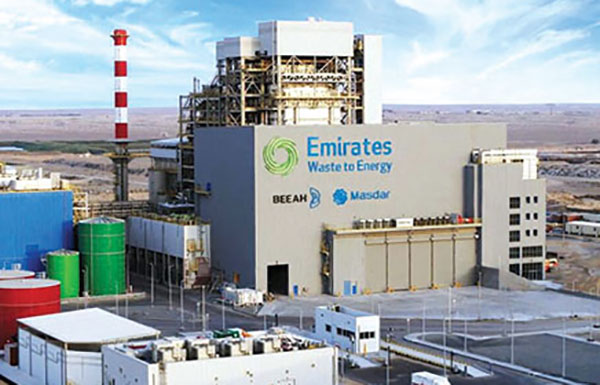The Sharjah Rubbish-to-Energy Plant inaugurated a new era of sustainable electricity production and climate neutrality by producing the first kilowatt (KW) of energy from waste.
The facility, the region’s first of its sort, will help convert roughly 300,000 tonnes of garbage into energy each year, creating 30 megawatts (MW) of low-carbon electricity, enough to power about 28,000 UAE households.
The project will also assist reduce the generation of up to 450,000 tonnes of CO2 each year, so boosting the country’s efforts to attain climate neutrality by 2050.
The project will aid the UAE’s attempts to convert garbage into an economic resource by creating and building a number of waste-to-energy plants in accordance with the circular economy strategy.
The government is still building waste-to-energy plants, such as the Dubai Waste Treatment Centre in Warsan.
The AED4 billion facility will be constructed in accordance with worldwide environmental standards, with a capacity of 1,000 loaded trucks per day, handling the emirate’s daily municipal solid waste of 5,666 tonnes.
It will also turn around 1.9 million tonnes of garbage into renewable energy each year, providing approximately 200 MW of clean energy to the local power grid.
The Abu Dhabi Department of Energy and the Abu Dhabi Trash Management Centre (Tadweer) have agreed to convert 5.1 million tonnes of municipal waste into energy in Abu Dhabi and Al Ain.
In January 2021, bidders were invited to submit applications to develop the first plant with an autonomous production system capable of processing garbage weighing between 600,000 and 900,000 tonnes.
The facility will assist to save roughly 1.5 million tonnes of CO2.
The development of a solid waste treatment facility and the generation of alternative fuels in Umm Al Qaiwain is proceeding at a cost of around AED132 million.
Federal Law No. 12 of 2018 on integrated waste management, the first of its kind at the federal level, aims to encourage the establishment of recycling facilities, as well as the recovery of the maximum amount of recyclable waste and, in some cases, the facilities required to reuse certain types of waste generated by their activities.
The Ministry of Climate Change and Environment released two resolutions the following year. The first seeks to employ refuse-derived fuel (RDF) in cement plants, while the second seeks to use construction debris in infrastructure and road projects.

